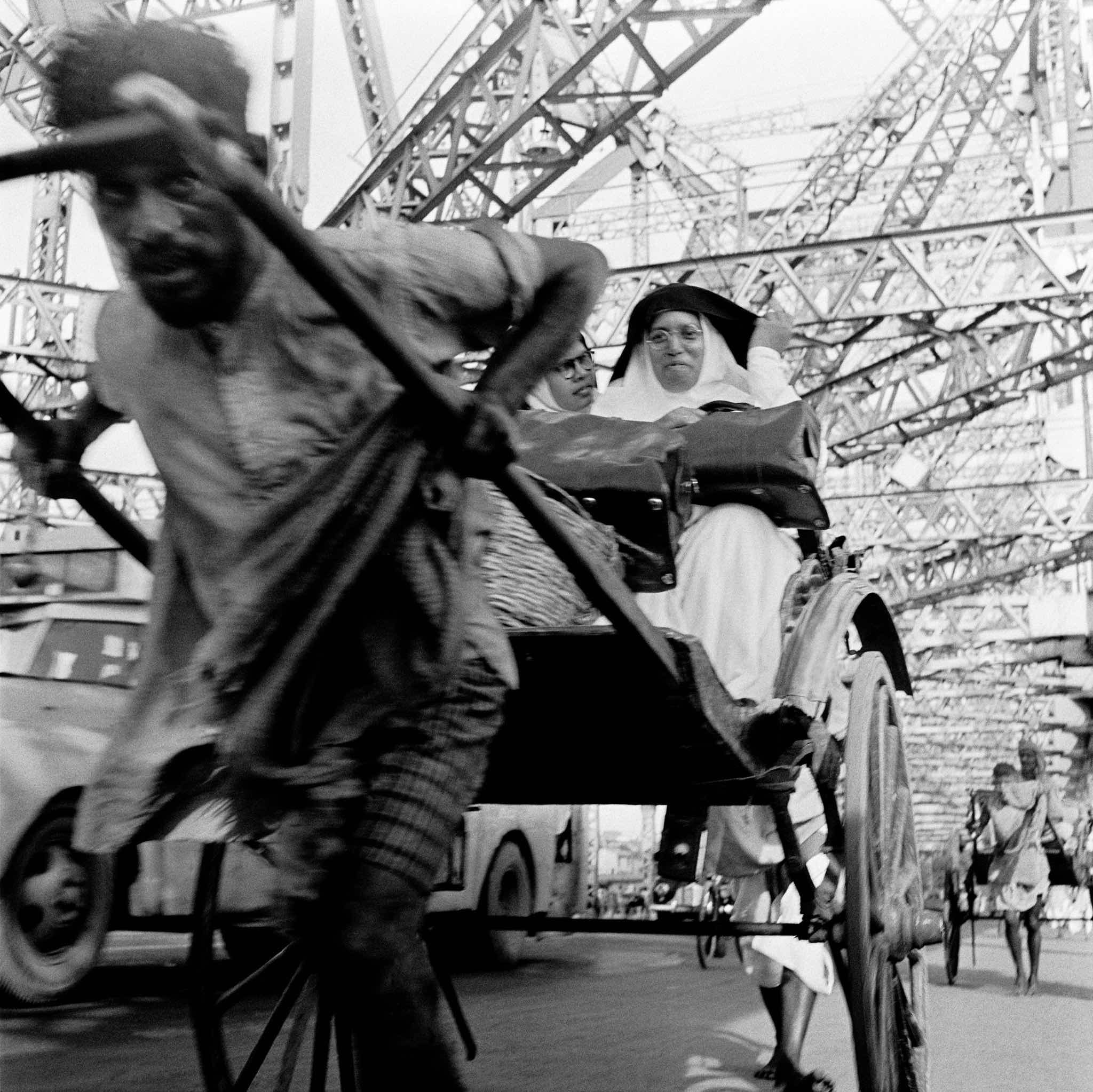HORVATLAND - THE '50s - PHOTOJOURNALISM - INDIAGO TO HOME
1963, from Time machine
Here, people walk in silence, squeezed on the cramped pavements. When you see a certain look staring out from a gaunt face, you tell yourself it must be the mark of hunger. You notice it on the rickshaw-coolies, most of whom seem to move as if in a trance. For eight annas (8 US cents), the coolie hauls his charge at a run. His passengers are often fat wives of well-to-do merchants (here, those who can afford to put on weight are proud to show it) accompanied by a sister or mother of the same mould and holding two or three children and several packages, all of which may easily adds up to 500 pounds. I’ve never seen a coolie drop his fixed stare. As if in his universe there was no room for the idea of a role reversal. In fact, rickshaw coolies are relatively privileged. Most are peasants who had to leave their village because of a debt or a bad harvest. By borrowing a few rupees from a moneylender, they find what is needed to pay the deposit on the vehicle hire. They don’t spend more than eight annas on their daily food and sleep on the roadsides, curled up under their buggies. So long as their savings aren’t stolen and they don’t succumb to TB or to the temptations of alcohol, they will manage to repay the debt and return to their villages. But they are not the only ones to sleep on pavements: the homeless – mostly men – are estimated to several million. Most just haven’t scraped together the money to hire a rickshaw. Their resignation seems so total that you finish up regarding it as natural and getting to the stage where you take a ride without a bad conscience: after all, you tell yourself, the eight annas will allow them to survive until tomorrow. I had more trouble getting used to the sight of the women stretched out in full sun, outside Howrah Station, surrounded by naked and visibly under-nourished children. They’re refugees, I’m told. But where from? And why did they flee? I’ve given up dreaming of social solutions and even my sense of outrage is dulled. I feel a knot in my stomach, rising to my throat. I would like to lean on the parapet of the bridge, look at nothing else than the green water of the Hooghly, and vomit.


1953, Calcutta, India, on Howrah Bridge, performer, carried on a rickshaw (o)

1953, Calcutta, India, on Howrah Bridge, performer, carried on a rickshaw (o)

